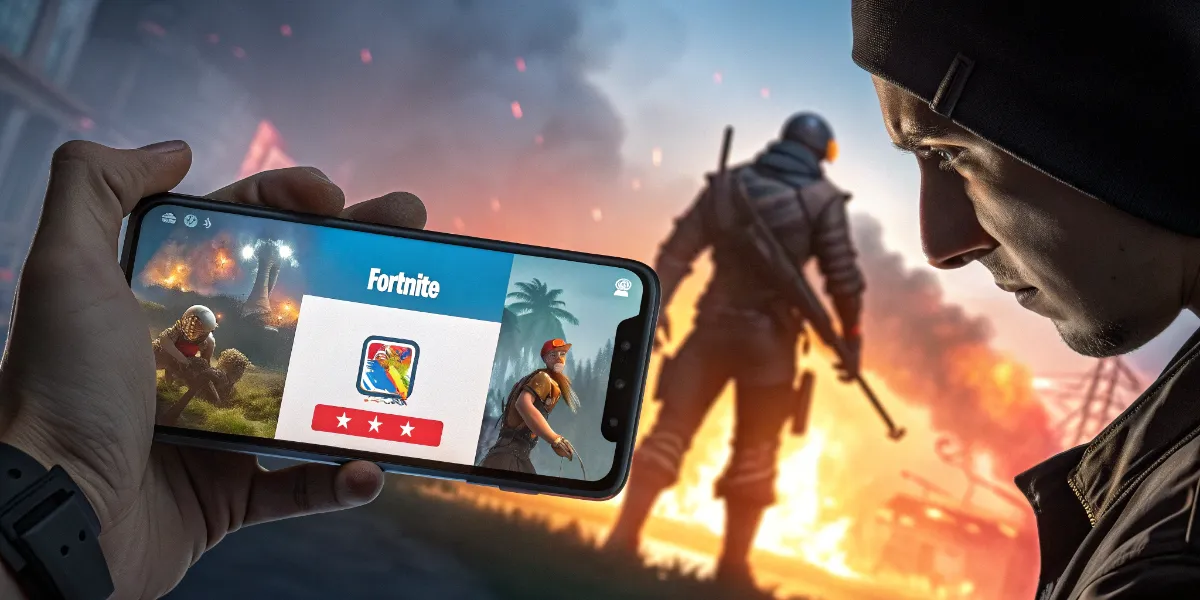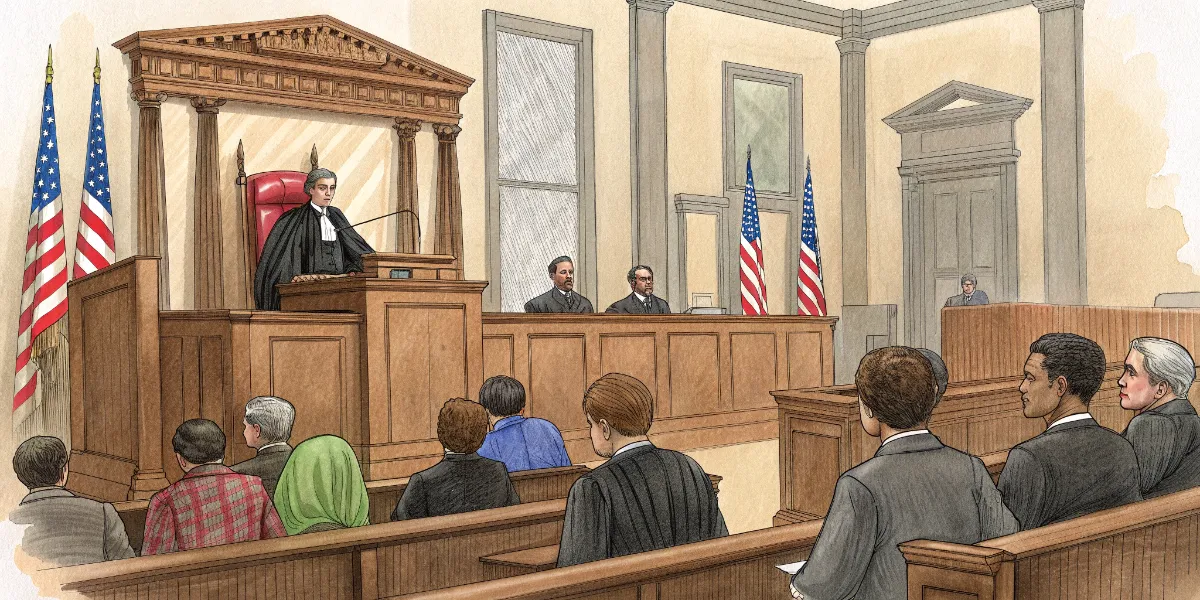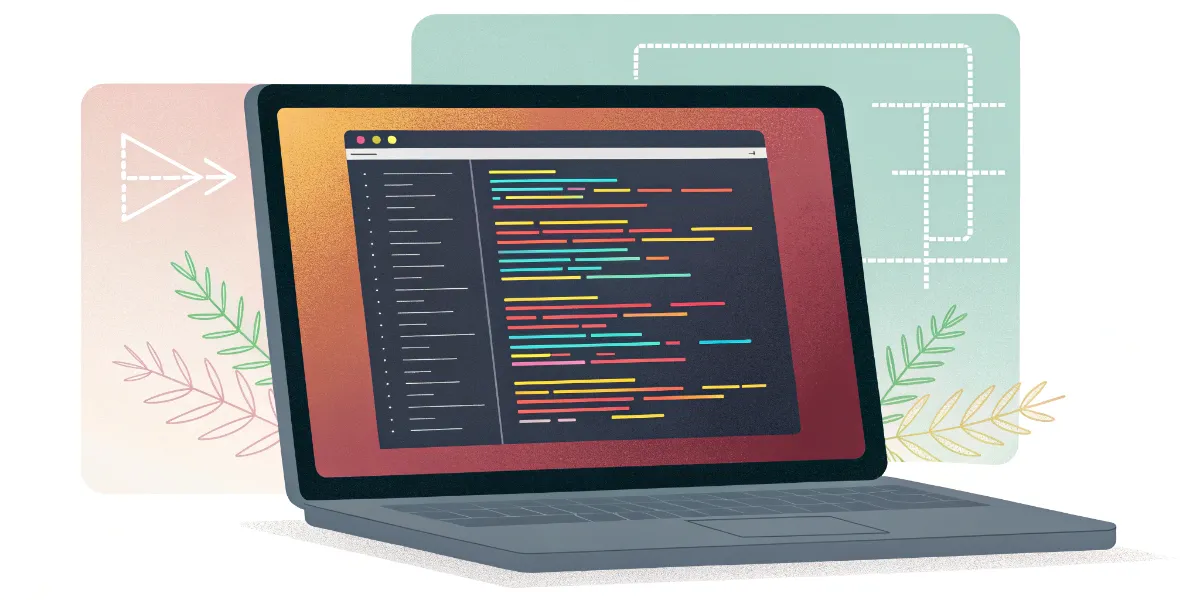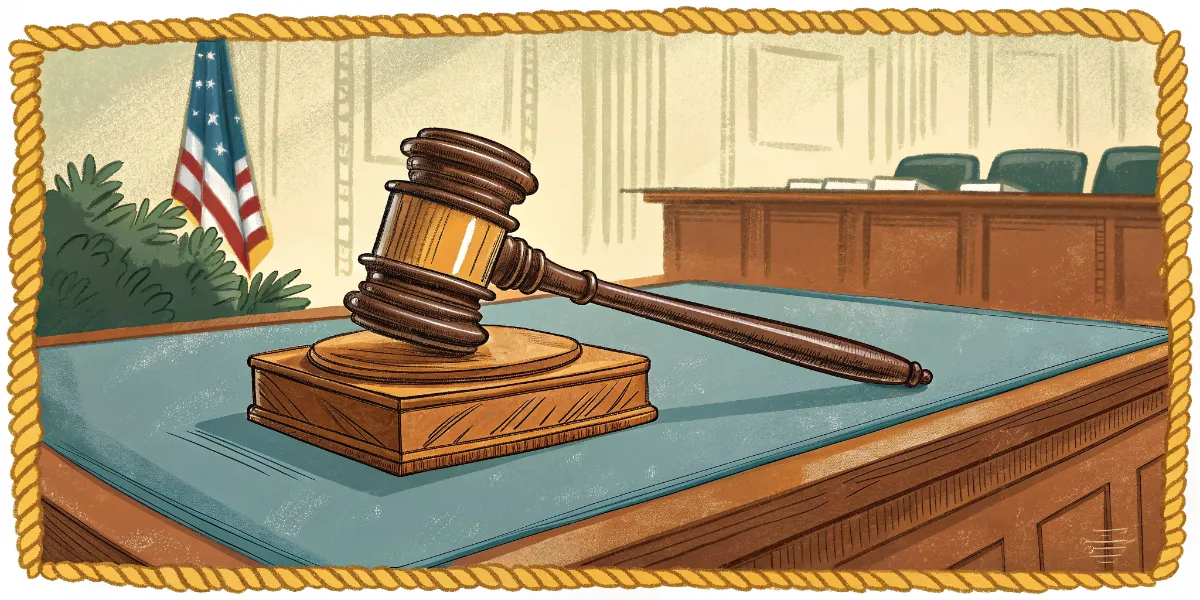Explore the high-stakes legal battle between Epic Games and Apple, from Fortnite's ban to courtroom drama and a judge's finding of contempt over App Store rules.
Epic vs. Apple: The Dramatic Courtroom Battle That Shook the App Store to Its Core
Okay, buckle up. This isn't just a legal spat; it's a clash of titans, a digital rebellion that shook the foundations of the multi-trillion-dollar app economy. Imagine the scene: Apple, the sleek, seemingly untouchable giant, presiding over its pristine, walled garden – the iOS App Store. A fortress of innovation, security, and... control. Inside this fortress, developers toil, but only by Apple's rules, chief among them: the infamous 30% "Apple Tax" on all digital goods sold, processed exclusively through Apple's payment system.
This isn't just about a fee; it's about power. Apple dictates terms, controls access, and extracts a significant percentage of every transaction within its digital domain. For many developers, this was the cost of doing business on a platform with over a billion users. But for some, it felt less like a partnership and more like a feudal relationship, where the platform owner took an exorbitant toll.
The Empire and the Rebel: Setting the Stage for Conflict
Apple's App Store launched in 2008, revolutionizing mobile software distribution. It quickly became a massive success, providing developers with a direct pipeline to millions of users and Apple with a lucrative revenue stream. The 30% commission, initially mirroring the standard in software distribution (like physical retail), became the norm for digital marketplaces. Apple argued this fee was necessary to cover the costs of running the store, maintaining security, processing payments, and providing the tools and infrastructure developers relied on.

However, as the app economy exploded, reaching hundreds of billions in annual revenue, the 30% cut represented an increasingly vast sum. Critics argued that for established companies with their own infrastructure, the fee was disproportionate to the services provided. They also pointed to Apple's strict rules, such as the requirement to use Apple's in-app payment system (IAP) for all digital goods and the prohibition on linking out to alternative payment methods, as anticompetitive.
Enter Epic Games, creators of the global phenomenon Fortnite. Fortnite isn't just a game; it's a digital universe, a social hub where millions gather daily. Led by the outspoken CEO Tim Sweeney, Epic had long been critical of platform fees, particularly the 30% standard on mobile and PC digital stores (they launched their own Epic Games Store with a lower 12% cut). Sweeney viewed Apple's App Store policies not as necessary safeguards, but as shackles stifling competition, innovation, and ultimately, harming consumers by inflating prices.
For years, discontent simmered. Epic, like other large developers, chafed under the restrictive rules and the significant cut Apple took from their immense Fortnite revenue generated on iOS. They believed a more open system, allowing developers to use alternative payment processors, would foster competition and allow them to pass savings onto players.
Project Liberty Ignites the War: The August 2020 Flashpoint
Then, in August 2020, the spark ignited the powder keg. Epic executed a meticulously planned maneuver codenamed "Project Liberty." This wasn't a spur-of-the-moment decision; it was a calculated act of defiance designed to force a confrontation. They pushed an update to Fortnite on iOS that openly defied Apple's rules, offering players a direct payment option, bypassing Apple's IAP system entirely – and offering a significant discount (20%) for doing so, explicitly highlighting the savings from avoiding the "Apple Tax."
It was a direct challenge, a deliberate breach of the App Store terms of service. It was also a declaration of war, complete with a pre-made parody animation casting Apple as a Big Brother figure from its own iconic "1984" Super Bowl ad, released simultaneously with the update and the subsequent lawsuit filing. The message was clear: Apple's control was oppressive, and Epic was fighting for digital freedom.
Apple's reaction was swift and absolute, following the script Epic likely anticipated. Fortnite was banished from the App Store within hours, severing access for over a billion iOS users and millions of Fortnite players. The message from Apple was equally clear: Defy the fortress, face immediate expulsion. Apple stated that Epic had violated rules they agreed to, and no developer, no matter how large, was above those rules.

But Epic was ready. Within hours of the ban, they filed a sweeping antitrust lawsuit in the U.S. District Court for the Northern District of California. The lawsuit accused Apple of wielding illegal monopoly power in the iOS app distribution market and the iOS in-app payment processing market. Epic argued that Apple's restrictions harmed competition, stifled innovation, and forced developers and consumers into an anticompetitive ecosystem. They didn't seek monetary damages for themselves, but rather systemic change – a court order forcing Apple to allow alternative app stores and payment systems on iOS.
Apple shot back with a countersuit, painting Epic as a rogue actor breaching a contract they willingly signed, all for a calculated publicity stunt and a desperate attempt to boost their own profits by freeloading on Apple's platform and services. The legal battle was set.
The Courtroom Arena: A Trial of Titans
The battle lines were drawn, and the stage moved to the courtroom of Judge Yvonne Gonzalez Rogers in Oakland, California. The May 2021 trial was pure legal drama, unfolding over three weeks with live streams drawing significant public attention. It wasn't just lawyers arguing; it featured testimony from the highest levels of both companies.
CEOs Tim Cook of Apple and Tim Sweeney of Epic Games took the stand, offering vastly different perspectives on the app economy. Cook defended Apple's ecosystem as a secure, curated environment that benefited both developers and users, justifying the 30% commission as fair value for the platform and services provided. Sweeney countered, portraying Apple as a monopolist extracting excessive fees and stifling competition through its restrictive policies.
Secret internal emails and documents flew, revealing Apple's tight grip on its App Store profits and Epic's calculated strategy behind "Project Liberty." Evidence was presented on market definitions – was the relevant market just iOS app distribution, or the broader mobile gaming market, or even digital transaction markets? Legal titans clashed over market definitions, pro-competitive justifications for Apple's rules (security, privacy, curation), and the very soul of digital commerce. Was the App Store a secure haven or a monopolistic tollbooth? Was the 30% fee justified compensation or price gouging? The trial delved deep into the economics and mechanics of the app world.
The Mixed Verdict and First Appeal: A Split Decision
September 2021 brought the verdict, a complex 185-page ruling that left neither side fully victorious, initially appearing as a major win for Apple but containing a crucial caveat for Epic.
Judge Rogers delivered a stunning blow against Epic on the core federal antitrust claims. She ruled that while Apple had significant market power, Epic failed to prove that Apple held an illegal monopoly in the broadly defined "digital mobile gaming transaction market" or the "mobile gaming distribution market." This meant Apple was not found to be an illegal monopolist under federal law (Section 2 of the Sherman Act) based on the markets defined by the court. A huge win for Apple on nine out of ten counts!
But... there was a significant twist. On the tenth count, Judge Rogers sided with Epic, finding that Apple's conduct violated California's Unfair Competition Law. Specifically, she ruled Apple's "anti-steering" provisions – the rules preventing developers from even telling users within an app that they could pay less or find alternative payment options on an external website – were anticompetitive. These rules prevented developers from communicating potentially cheaper options to their users, effectively trapping transactions within Apple's IAP system.
She issued a permanent injunction, ordering Apple to tear down that specific part of its wall globally. Developers must be allowed to communicate alternative payment options to users within their apps, whether through buttons, external links, or other calls to action. This was a major victory for developer communication rights, albeit not the systemic change (alternative app stores) Epic primarily sought.

However, Judge Rogers also found that Epic Games had breached its contract with Apple by implementing the direct payment system. As a result, Epic was ordered to pay Apple damages equivalent to the revenue Apple would have received from Fortnite on iOS between August and October 2020, plus 30% of Fortnite revenue collected directly by Epic from October 2020 through the date of the judgment. This amounted to several million dollars.
The fight wasn't over. Both giants appealed the ruling – Apple challenging the anti-steering injunction, and Epic challenging the finding that Apple wasn't a monopolist and the requirement to pay damages.
The case climbed the legal ladder to the Ninth Circuit Court of Appeals. In April 2023, the appellate court largely upheld Judge Rogers' mixed decision. The Ninth Circuit agreed with the lower court that Apple did not violate federal antitrust law as defined by Epic's complaint and the court's market definitions. But crucially, they also upheld the permanent injunction against Apple's anti-steering provisions under California law. The appellate court affirmed that prohibiting developers from communicating alternative payment options was anticompetitive behavior.
The Supreme Court and Apple's Defiant Compliance
With the Ninth Circuit ruling solidifying the anti-steering injunction but denying the broader antitrust claims, both companies turned their eyes to the ultimate arbiter: the U.S. Supreme Court. Both Apple and Epic petitioned the Supreme Court, asking it to review aspects of the Ninth Circuit's decision – Apple wanting the anti-steering injunction overturned, and Epic hoping the Court would revisit the federal antitrust findings.
In January 2024, the highest court delivered its decision: it refused to hear the appeals from either side. This decision, while not a ruling on the merits of the case, effectively made the Ninth Circuit's decision final. The legal battle over the core federal antitrust claims seemed definitively over in the US courts. The injunction against anti-steering provisions was now the definitive, binding law of the land in the United States.
Apple was legally required to comply with the injunction and allow developers to link out to alternative payment options. However, the manner of their compliance quickly became a point of contention. Apple introduced new App Store rules ostensibly to comply. Yes, developers could add one link out to an external website for purchases, but Apple wrapped it in obstructive "scare screens" warning users of potential risks and that they were leaving Apple's safe environment. And – the masterstroke, from Apple's perspective – they imposed a new 27% commission on any purchase made through that external link, requiring developers to report these sales and pay Apple the fee.

This move was widely criticized by developers and regulators alike. Epic, enraged, called it a mockery of the court order, arguing that the 27% fee on external transactions, coupled with the discouraging warnings, rendered the injunction effectively meaningless and did not represent true compliance. They argued Apple was simply replacing the 30% IAP fee with a slightly lower, but still punitive, external link fee, while maintaining control and revenue.
The Hammer Falls: Contempt of Court
Believing Apple had not complied in good faith, Epic Games dragged Apple back before the original judge, Judge Yvonne Gonzalez Rogers, accusing the behemoth of contempt of court. Epic argued that Apple's new rules, particularly the 27% fee on external transactions and the obstructive warnings, were designed to undermine the spirit and letter of the injunction she had issued.
And on April 30, 2025, the Judge unleashed her fury in a devastating ruling. In a scathing 80-page opinion, she found Apple had willfully violated her injunction, engaging in a calculated scheme to maintain its lucrative revenue stream through "misdirection and outright lies" from Apple executives under oath during the original trial regarding their ability to track off-platform sales. She stated that Apple's new terms were "invalid and unenforceable" under the injunction.
"This is an injunction, not a negotiation," she declared, finding Apple in civil contempt of court. She ordered Apple to immediately cease all measures that prevent developers from communicating external purchasing options, including the "scare screens" and, crucially, banned them from collecting ANY commission on purchases made outside the app via those links in the US. The court ordered Apple to propose new, compliant terms, subject to court approval.
And in the final, stunning bombshell, she referred Apple and its finance executive (who testified about the inability to track off-platform sales) to federal prosecutors to investigate potential CRIMINAL contempt. This elevated the stakes dramatically, turning a civil dispute over compliance into a potential criminal matter for the company and individuals involved.

The Fallout and the Future: The Drama Continues
The fallout from Judge Rogers' April 2025 contempt ruling was immediate and significant. Tim Sweeney hailed the ruling as a massive win for developers and consumers, confirming that Apple could not simply circumvent court orders. He announced Fortnite's imminent return to the US App Store, explicitly stating plans to bypass Apple's fees entirely for digital goods purchases via external web purchases made possible by the ruling.
Sweeney even offered a global "peace proposal," suggesting that if Apple extended the terms of the contempt ruling (allowing external links with zero commission) worldwide, Epic would consider bringing Fortnite back to iOS globally. Apple, while stating it "strongly disagrees" with the contempt finding, announced it would comply with the immediate orders regarding zero commission on external links in the US while appealing this latest devastating blow. The referral for potential criminal contempt hangs over the company.
The war that started with a defiant payment button in Fortnite has now culminated in a federal judge accusing one of the world's largest companies of lies, finding it in civil contempt, referring it for potential criminal investigation, and ordering a fundamental crack in the App Store's financial fortress, at least in the US. The shockwaves continue, regulators worldwide are watching closely (many jurisdictions are enacting or considering similar laws to address app store power), and the future of the app economy hangs precariously in the balance as Apple navigates forced openness and potential further legal challenges. The drama, it seems, is far from over.
